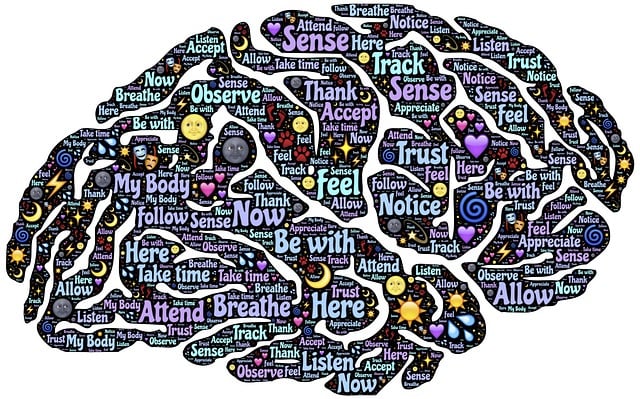Lone Tree Christian Counseling Therapy (LTCT) employs the RFM framework—Resources, Fortitudes, and Motivation—to holistically enhance mental well-being by building resilience. Using evidence-based practices and faith-based principles, LTCT offers tailored therapy sessions and programs that focus on coping skills development, cultural sensitivity, cognitive-behavioral therapy, and risk management planning. By cultivating resources, fortitudes, and motivation, LTCT equips clients to overcome life's obstacles, manage stress, and maintain emotional stability, ensuring they remain steadfast in the face of challenges. Integrating RFM exercises regularly contributes to long-term mental wellbeing, fostering inner strength and resilience.
“Discover the power of resilience with a structured approach, the RFM model, designed to empower individuals in navigating life’s challenges. This article explores how Lone Tree Christian Counseling Therapy utilizes this framework to build strength and adaptability. We’ll delve into practical exercises enhancing coping skills, demonstrating their effectiveness in everyday life. Learn how integrating RFM strategies can foster long-term wellbeing, offering a path to resilience and a balanced life.”
- Understanding RFM: A Framework for Resilience
- The Role of Lone Tree Christian Counseling Therapy in Building Resilience
- Practical Exercises to Enhance Resilience and Coping Skills
- Integrating RFM into Daily Life for Long-Lasting Wellbeing
Understanding RFM: A Framework for Resilience

At Lone Tree Christian Counseling Therapy, we recognize that building resilience is a fundamental aspect of mental well-being. This is where RFM—a powerful framework—comes into play. RFM stands for Resources, Fortitudes, and Motivation, offering a holistic approach to understanding and enhancing an individual’s ability to cope with life’s challenges.
Resources refer to the internal and external supports available to an individual, including coping skills development, compassion cultivation practices, and cultural sensitivity in mental healthcare practice. Fortitudes are the personal attributes and positive mindset shifts that enable one to navigate difficult situations. Motivation, on the other hand, drives individuals to persevere through challenges, fostering a sense of purpose and self-efficacy. By cultivating these three elements, Lone Tree Christian Counseling Therapy empowers clients to build resilience and thrive in the face of life’s obstacles.
The Role of Lone Tree Christian Counseling Therapy in Building Resilience

Lone Tree Christian Counseling Therapy plays a pivotal role in fostering mental wellness and resilience among individuals seeking support. Through specialized programs and individualized therapy sessions, they offer a unique approach to help clients navigate life’s challenges. This counseling center understands that building resilience is an essential aspect of overall well-being, especially for those facing personal crises or navigating the complexities of modern life.
By incorporating evidence-based practices and integrating faith-based principles, Lone Tree Christian Counseling Therapy provides a safe and supportive environment. Their expert therapists utilize techniques such as cognitive-behavioral therapy to promote emotional well-being and teach effective coping strategies. Additionally, they emphasize the importance of risk management planning for mental health professionals, ensuring that their clients gain valuable tools to maintain resilience over time.
Practical Exercises to Enhance Resilience and Coping Skills

Building resilience is a crucial aspect of maintaining mental well-being, especially in today’s fast-paced and demanding world. At Lone Tree Christian Counseling Therapy, we understand that equipping individuals with effective coping strategies is essential for navigating life’s challenges. Our approach to enhancing resilience involves practical exercises tailored to foster emotional healing processes and prevent burnout.
Through various therapeutic techniques, we guide clients in developing strong social skills training methods, enabling them to build supportive networks and find healthy ways to express emotions. These exercises are designed to help individuals become more adept at managing stress, regulating their moods, and bouncing back from setbacks. By participating in these activities, one can strengthen their mental resilience, ensuring they remain steadfast even amidst life’s complexities.
Integrating RFM into Daily Life for Long-Lasting Wellbeing

Integrating RFM—a powerful tool offered by Lone Tree Christian Counseling Therapy—into daily routines can profoundly enhance long-term mental wellbeing. This involves cultivating a mindset that embraces resilience, fortifying coping skills, and fostering self-esteem improvement. By regularly practicing RFM exercises, individuals can develop effective strategies to navigate life’s challenges, thereby reducing the risk of depression prevention and promoting overall emotional stability.
This holistic approach empowers individuals to transform their reactions to stressors, nurturing a sense of inner strength and resilience. The techniques learned from RFM not only aid in managing present difficulties but also equip people with the tools needed to persevere through future adversity. Whether it’s reappraising situations for growth, cultivating meaningful connections, or practicing self-compassion, these practices contribute to a more optimistic outlook and enhanced coping skills development.
Resilience is a powerful tool that enables individuals to navigate life’s challenges with strength and adaptability. The RFM framework, as discussed, offers a structured approach to building this resilience, especially when combined with professional counseling like that provided by Lone Tree Christian Counseling Therapy. By integrating practical exercises into daily routines, one can enhance their coping skills and foster long-lasting wellbeing. This journey towards resilience is accessible to all, encouraging folks to take control of their mental health and embrace life’s ups and downs with a newfound sense of equilibrium.














